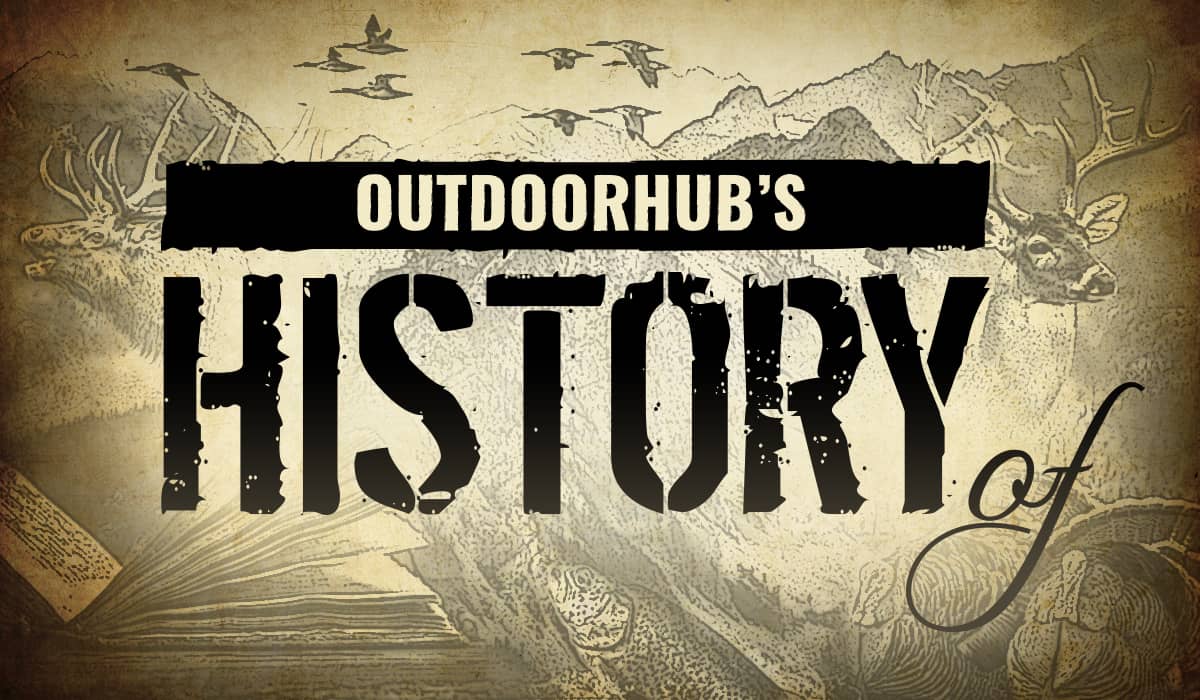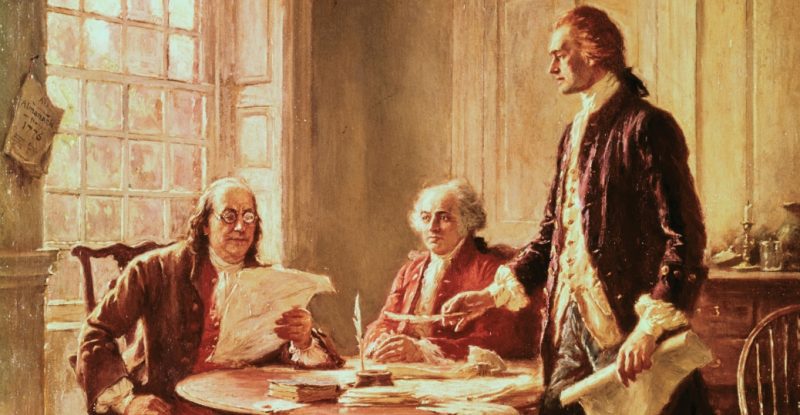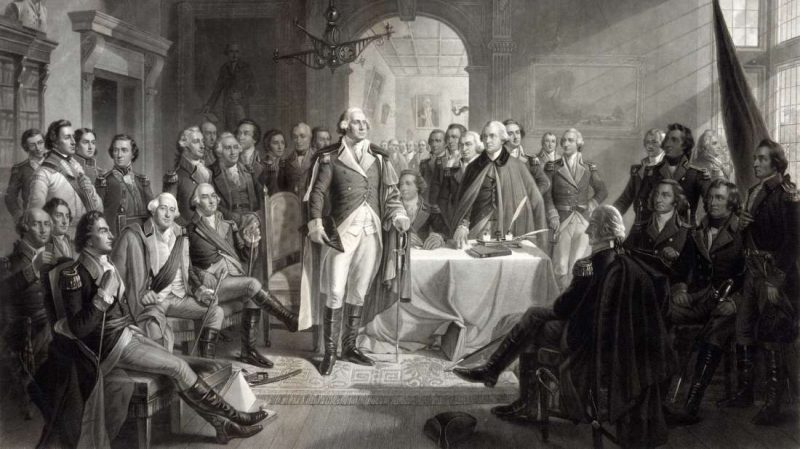History of: Independence Day
OutdoorHub Reporters 07.04.18

Independence Day means certain things to a great many Americans, but with it becoming a paid federal holiday in 1938, the primary hallmarks of the day for many include time off, pageantry, beer, parades, fireworks, BBQs, jumping into swimming pools, … was beer mentioned?
Quite simply the meaning behind the holiday gets a bit lost in the haze from the smoke of the grill and spent fireworks.
Americans enjoy a sense of entitlement on the 4th derived from a sense of hindsight. Americans won the War for Independence. However, at first, it was not a foregone conclusion: in fact, the events immediately following the events of July 4th, 1776 made it appear that what the founding fathers attempted was a fool’s folly. Independence often seems that way to those who have grown dependent.
For the United States there is no Independence Day with the Declaration of Independence. The publication of that document on this date announced the event that the American delegates took that step of self-recognition and formally announced their separation for the British Empire. Americans take great comfort that the endeavor started here ended in success, yet this was not the start: there had already been over fourteen months of conflict between the colonists and the British, as well as among the colonists themselves, just to reach this point.
Fighting began the year before in April of 1775 in Massachusetts. The conflicts at Lexington and Concord could almost be excused as a misunderstanding, and in fact the Continental Congress quickly convened that June in an attempt to do just that with the Olive Branch Petition and even appealed to the London Times asking how Englishmen in England would respond to armed soldiers confiscating property without warrants or due process. Events in Massachusetts, however, outpaced efforts of damage control when British General Thomas Gage opted to push militia forces off the heights overlooking Boston on Breed’s Hill. The battle that resulted, commonly known as Bunker Hill, ended with a British victory when the colonists were run off, but with almost 50% casualties suffered by the British Army. The resolve and anger in England at such losses pushed King and Parliament to denounce anyone talking of colonial rights as a traitor in the Proclamation of Rebellion.
Even then the Continental Congress hedged at moving towards complete Independence. Colonial delegates from middle colonies like Pennsylvania still held out hopes of reconciliation while those from Massachusetts and Virginia were convinced separation was the only way to go as King George III followed his Proclamation with blockades of American ports and the hiring of German mercenaries to be sent to quell the rebellion. As these acts helped galvanize the Continental Congress away from reconciliation and even consider drafting a statement of separation, it is not unreasonable to say that without George’s efforts, perhaps American independence would have been stillborn.
It came to the brilliance of three men: Thomas Jefferson, John Adams and Ben Franklin (Robert Livingston and Roger Sherman were also part of this draft committee, but history often glosses over them) to articulate the only path that they saw open to them. The angry actions of Parliament and King proved that reconciliation was impossible, to say nothing of the recognition of English rights so long ignored by the agents of the Crown in the colonies that started the whole unpleasantness in the first place. Thus, the most poignant and concise “Dear John” letter ever penned.

As a literary and political document, the Declaration of Independence has inspired millions both in America and throughout the world to fight for the right to be recognized as equal. While the Continental Congress voted to adopt the Declaration on July 2, 1776, it was not made available to the public of Philadelphia until July 4, and from there to the rest of the world.
The Declaration of Independence, however, was not a declaration of War. It simply stated that the colonies were declaring their independence from Britain as free and equal states and more importantly, why. In fact, the Declaration went on to enumerate no less than 28 reasons of where the Crown specifically, and by extension Parliament and Great Britain in general, had violated the established English rights of their colonists in America. Despite this, the writers were eager to reference their consanguinity between these newly created Americans and their British brethren, pledging to hold them as “enemies in war, in peace friends.”
It was a wonderful moment when 56 signers pledged their lives, fortunes and sacred honors in public against the greatest military and economic power in the world. At almost the same time Britain landed its largest force since the French & Indian War in Staten Island, New York to teach these continentals a lesson. Over the next five months the Continental Army was kicked out of Long Island, Manhattan, Harlem, then clear across New Jersey into eastern Pennsylvania with almost 90% attrition – not to casualties, but desertion. Many of the delegates could not be blamed for feeling that declaring independence was perhaps the worst thing they may have ever done and this great document and most patriotic of holidays was destined to be a forgotten footnote.
Yet George Washington managed to snatch victory from the jaws of defeat (the exact opposite of what he was often accused of by his many contemporary detractors) at Trenton, then again at Princeton. Americans know, or at least appreciate, that the Revolution was won, but few recognize how tenuous that victory was, or how long it took.

The fighting in the American Revolution was a conflict that lasted a total of eight years, and it was not until the absolute end in 1783 that victory was realized. The meantime saw many defeats that threatened ultimate success – Washington did in fact lose as many if not more battles than he won, but he also managed to always save his army to fight another day – a testament to his greatest martial talent. It seems that his primary goal was not to defeat the British in battle, just remain in the field – but he undoubtedly favored his victories. Americans have spent the almost two and half centuries since trying to win the peace, a process that threatens more violence even to this date.
Given the length and cost of the war, not to mention the factious nature of the thirteen colonies turned independent states, it is small wonder that initially the Fourth of July was barely remarked as it passed every year on the official date of the nation’s birth (militia enthusiasts may recognize April 19th as the real birthdate). While small and local celebrations took place during the war, mostly in honor of elements of the Continental Army, it was not until 1781 that any state, Massachusetts, recognized the date as an official holiday in any meaning. On a national level, it remained a casual observance. Perhaps the next greatest events to happen on the Fourth of July were in 1863 with the Union’s victories at Gettysburg (actually on July 3rd, but news of it did not become widely known until the next day) and Vicksburg during the Civil War.
In 1870, Congress recognized the date as an unpaid federal holiday. Finally, in 1938 it became a paid federal holiday, ensconcing it as an equal to Christmas and Thanksgiving. However, with that placement, perhaps the “true meaning” of Independence Day gets lost. Like Christmas it becomes less a celebration of what happened and more focused on what will be obtained: a day off, new pool toys, a new grill, a day at the beach, how many sparklers can be simultaneously ignited. While the effort to come together as a community exists, with parades and families gathering around the grill, it is easy to forget how the founding fathers attempted something so daring that to many of their contemporaries even feared it was something ill advised. The question many ask is why.
As a topical parallel, consider a modern celebrant lighting an M60 firecracker and watching the fuse go faster than expected – that visceral “what have I done?!” experience is what Americans felt for eight long years. It is important to remember they did not endure it just for the momentary satisfaction of a window rattling ka-boom. Independence Day celebrates not only our individuality, but also our journey to treat everyone as equals, and pledge ourselves, our own fortunes and our own sacred honors to one another not deviate from the path those fuse lighting, liberty loving patriots started.
Happy Fourth of July!

